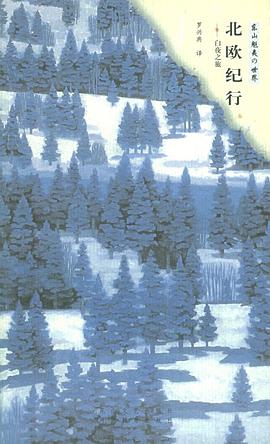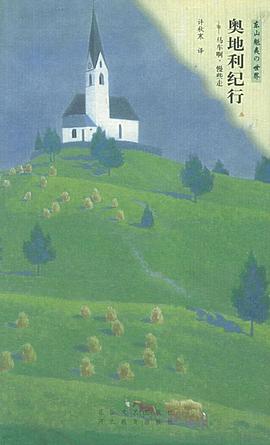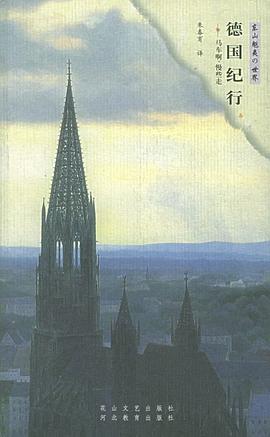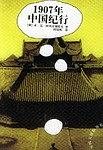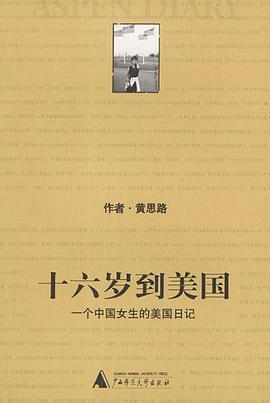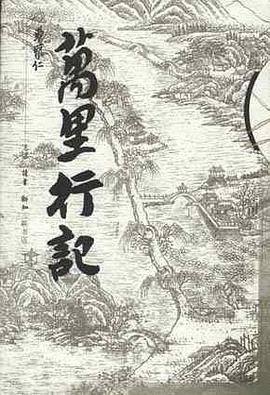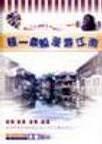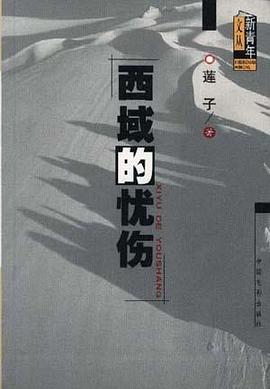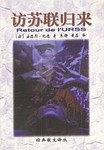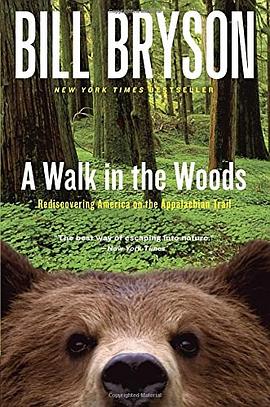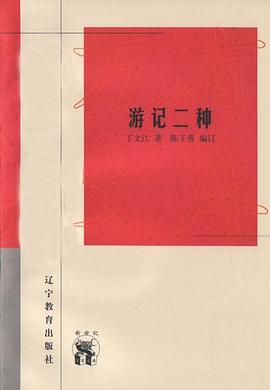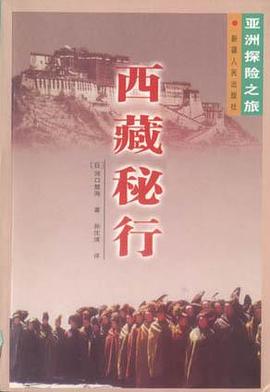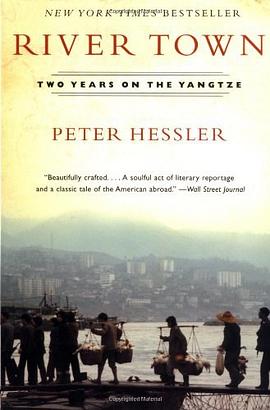

具体描述
In 1996, 26-year-old Peter Hessler arrived in Fuling, a town on China's Yangtze River, to begin a two-year Peace Corps stint as a teacher at the local college. Along with fellow teacher Adam Meier, the two are the first foreigners to be in this part of the Sichuan province for 50 years. Expecting a calm couple of years, Hessler at first does not realize the social, cultural, and personal implications of being thrust into a such radically different society. In River Town: Two Years on the Yangtze, Hessler tells of his experience with the citizens of Fuling, the political and historical climate, and the feel of the city itself.
"Few passengers disembark at Fuling ... and so Fuling appears like a break in a dream--the quiet river, the cabins full of travelers drifting off to sleep, the lights of the city rising from the blackness of the Yangtze," says Hessler. A poor city by Chinese standards, the students at the college are mainly from small villages and are considered very lucky to be continuing their education. As an English teacher, Hessler is delighted with his students' fresh reactions to classic literature. One student says of Hamlet, "I don't admire him and I dislike him. I think he is too sensitive and conservative and selfish." Hessler marvels,
You couldn't have said something like that at Oxford. You couldn't simply say: I don't like Hamlet because I think he's a lousy person. Everything had to be more clever than that ... you had to dismantle it ... not just the play itself but everything that had ever been written about it.
Over the course of two years, Hessler and Meier learn more they ever guessed about the lives, dreams, and expectations of the Fuling people.
Hessler's writing is lovely. His observations are evocative, insightful, and often poignant--and just as often, funny. It's a pleasure to read of his (mis)adventures. Hessler returned to the U.S. with a new perspective on modern China and its people. After reading River Town, you'll have one, too. --Dana Van Nest, Amazon.com
作者简介
彼得·海斯勒(Peter Hessler),中文名何伟,曾任《纽约客》驻北京记者,以及《国家地理》杂志等媒体的撰稿人。
他成长于美国密苏里州的哥伦比亚市,在普林斯顿主修英文和写作,并取得牛津大学英语文学硕士学位。海斯勒曾自助旅游欧洲三十国,毕业后更从布拉格出发,由水陆两路横越俄国、中国到泰国,跑完半个地球,也由此开启了他的旅游文学写作之路。
海斯勒散见于各大杂志的旅游文学作品,数度获得美国最佳旅游写作奖。他的中国纪实三部曲中,《江城》一经推出即获得“奇里雅玛环太平洋图书奖”,《甲骨文》则荣获《时代周刊》年度最佳亚洲图书等殊荣。海斯勒本人亦被《华尔街日报》赞为“关注现代中国的最具思想性的西方作家之一”。
目录信息
读后感
那一年我大三,在成都的一所高校上学。一次短暂的假期,坐大巴车到了重庆,在城市漫无目的的晃荡了一天之后,在朝天门广场买了一张到武汉的船票。船在黄昏时分起航,码头上是拥挤的人群。我所在的二等舱有四个铺位。其他三个铺位的主人是从贵州来三峡旅游的女人。那是我第...
评分 评分一本《寻路中国》让何伟在中国知识圈炙手可热,几乎登上了每一家我所见到的媒体。这本《River Town》则记录了第一次来中国时的青涩感观。《寻路中国》之所以一石激起千层浪,是因为他给了我国人一种旁观者的视角来反躬自省,书中令我们眼前一亮、心头一颤的论断遍地皆是,仿佛...
评分看这本书的时候,我的感受有点奇怪,因为我感觉到自己的思路明显是和Peter站在一边的。简单的说,我在他的书看到了以前的自己,而现在的我一直用一种带有西方价值观的思维方式去审视过去的,包括以前的教育和在这个教育体制下产生的我。虽然我并不来自四川,但是书里面提到的...
评分【汗,翻页电梯】http://book.douban.com/review/5331789/?start=100 1996年至1998年间,那个叫彼得•海斯勒的“蓝眼睛”美国人,来到了中国重庆附近、长江边上的小城涪陵,在那儿的涪陵师专,做了一名外教,他还给自己取了中文名字叫何伟,不久,他写了一本书叫《江城》来...
用户评价
这本书,名为《River Town》,真的让我体会到了什么叫做“润物细无声”。它的魅力并非一蹴而就,而是像涓涓细流,慢慢渗透到我的内心深处,最终汇聚成一片汪洋。我常常觉得,好的文学作品,不仅仅是讲故事,更是创造一个世界,让读者能够沉浸其中,仿佛亲身经历。而《River Town》,恰恰做到了这一点。作者的文字,就像是一双神奇的手,在我眼前徐徐展开一幅幅生动的画面。我能感受到河水的轻柔拍打,能听到小镇居民们低语的交谈,甚至能闻到夏日午后暴晒在屋顶上的泥土气息。这种极致的真实感,让我完全忘记了自己是在阅读。人物的刻画更是达到了炉火纯青的地步。他们不仅仅是名字和身份的集合,更是拥有着复杂情感和深刻动机的个体。我看到了他们的善良,他们的挣扎,他们的爱与痛,他们的希望与绝望。这些人物,不再是故事的附属品,他们就是故事的核心,他们的每一个选择,都牵动着我的心弦。我曾因为某位角色的遭遇而感到惋惜,也曾因为他们的坚持而获得力量。这种情感上的共鸣,是如此强烈,以至于我会在阅读结束后,久久不能平静。我开始思考,在这样一个看似平凡的小镇里,隐藏着多少不平凡的故事?在每一个普通人的背后,又有着怎样深刻的人生轨迹?《River Town》没有给我一个明确的答案,它只是邀请我去感受,去体会,去思考。
评分我必须承认,在拿到《River Town》这本书的时候,我内心是有些许犹豫的。我担心它会是一部枯燥乏味的叙事,或者是一部过于沉重的悲剧。然而,事实证明,我的担忧是多余的。这本书,给我带来了太多意想不到的惊喜和深刻的触动。作者的写作风格非常独特,他能够用一种极其平实、甚至有些朴素的语言,勾勒出最动人心魄的画面,塑造出最鲜活的人物。我仿佛看到了《River Town》的每一个角落,从那古老斑驳的墙壁,到街道上孩子们嬉戏的身影,再到夜晚星空下的寂静。这些景象,并不需要华丽的辞藻来修饰,它们本身就充满了生命力。我特别喜欢作者对人物内心世界的描绘。他没有去刻意制造戏剧冲突,而是深入到人物最细微的情感变化,最隐秘的内心独白。我看到了他们的犹豫,他们的挣扎,他们的爱与被爱,他们的失落与希望。这些人物,不再是遥不可及的存在,他们就像是我身边真实存在的朋友,他们的喜怒哀乐,都让我感同身受。我常常在阅读过程中,因为某个角色的选择而陷入沉思,也会因为他们的坚韧而获得力量。这种情感上的连接,让我觉得我不仅仅是在阅读一本书,我是在参与一场关于生命的对话。
评分我一直对那些能够构建出庞大而真实世界的作者充满敬意,而《River Town》的作者无疑是其中的佼佼者。刚开始翻阅这本书时,我并没有抱有太高的期待,我只是被书名所吸引,觉得它可能是一部关于自然风光或者小镇生活的小说。然而,事实证明,我的想法是多么的浅薄。作者所创造的《River Town》,早已超越了一个简单的地理概念,它成了一个充满活力的有机体,有着自己的呼吸,自己的节奏,自己的历史。从那些古老的建筑细节,到居民们世代相传的习俗,再到小镇背后那些不为人知的传说,一切都被描绘得如此生动,如此令人信服。我仿佛能够看到那些尘封的故事在眼前一一展开,感受到时间的流逝,感受到历史的沉淀。更令我称道的是,作者并没有将重心放在宏大的叙事上,而是深入到小镇居民们的内心世界,细致入微地描绘他们的情感波动,他们的内心纠葛。那些人物,他们不是为了推动情节而存在,他们本身就是故事本身。他们的爱恨情仇,他们的迷茫与选择,都那么真实,那么具有感染力。我常常在阅读时,因为某个角色的遭遇而感到心痛,也会因为他们的成功而由衷地感到高兴。这种情感上的投入,是我在阅读其他作品时很少能体验到的。这本书让我看到了人性的复杂与美好,让我思考在不同的境遇下,人们会做出怎样的选择。作者的文字功底毋庸置疑,他能够用最简洁的语言,勾勒出最深刻的意境,用最平凡的叙述,道出最动人的情感。
评分《River Town》这本书,真的给我带来了太多意想不到的惊喜。我通常不是那种会轻易被一本小说完全俘获的读者,但这次,我彻底栽进去了。书中的每一个细节,都经过了作者极其用心的打磨,仿佛经过千锤百炼的宝石,闪耀着独属于它的光芒。我不是在阅读一个故事,我是在经历一段人生,一群人的生活。那些在《River Town》里发生的故事,它们并不总是轰轰烈烈,甚至有些平淡,但正是这种平淡,最能触动人心。我看到了普通人的挣扎,他们的无奈,他们的坚持,他们的爱与被爱。作者的笔触非常细腻,能够捕捉到那些转瞬即逝的情感,那些隐藏在眼神深处的心事。我常常会因为书中某个角色微小的举动而感动,也会因为他们面临的困境而担忧。这种共鸣,不是强加的,而是自然而然地产生的。阅读的过程,就像是在和一群老朋友聊天,他们向我敞开心扉,诉说着他们的过往,他们的梦想,他们的遗憾。我坐在那里,静静地倾听,时而点头,时而陷入沉思。这本书让我重新审视了“生活”这个词的含义。它不仅仅是生存,更是感受,是体验,是与周围的人和事建立深刻的连接。我喜欢作者对环境的描写,那种真实感,让我仿佛能闻到河水的味道,听到远处传来的钟声。这种身临其境的感觉,极大地增强了我的阅读体验。我不得不说,这是一本值得反复品读的书,每一次阅读,都会有新的发现,新的感悟。
评分《River Town》这本书,给我带来的震撼,与其说是情节上的跌宕起伏,不如说是它在我的内心深处激起的涟漪。作者的叙事方式非常独特,它不像许多小说那样,开门见山,直奔主题,而是像一个经验丰富的老人,慢慢地,娓娓道来,将一个又一个故事,一段又一段人生,在我眼前缓缓展开。我被带入了一个充满生活气息的世界,一个可能并不起眼,却有着自己独特韵味的小镇。我能感受到河水的流动,能听到风吹过树叶的声音,能看到不同季节里小镇的色彩变化。这种对环境细致入微的描绘,让我仿佛身临其境,对《River Town》产生了一种莫名的亲切感。而书中人物的塑造,更是让我惊叹不已。他们不再是简单的好人或坏人,而是拥有着复杂人性,有着自己困惑和追求的真实个体。我看到了他们的善良,他们的脆弱,他们的坚持,他们的妥协。我常常因为他们的遭遇而感到心疼,也会因为他们的勇气而受到鼓舞。这种情感上的连接,是我在阅读过程中最珍视的部分。我开始思考,在这样一个看似平静的小镇里,隐藏着多少不为人知的故事?在每一个普通人的背后,又有着怎样的生命轨迹?《River Town》并没有给我一个明确的答案,它只是提供了一个观察的视角,一个让我去感受,去体会,去思考的空间。
评分很少有书能让我读完后,久久不能释怀,但《River Town》做到了。它不像那些以刺激情节取胜的小说,它的魅力在于那种沉甸甸的生活感,那种仿佛从土壤里生长出来的真实。作者的文字,就像是一双温暖的手,轻轻地触碰着你内心最柔软的地方。我被带入了一个真实而充满烟火气的小镇,那里有河流,有房屋,有市集,更有形形色色的人。我能感受到空气中弥漫的淡淡的草木清香,能听到远方传来的悠扬的汽笛声,能看到小镇居民们脸上那饱经风霜却依然充满希望的笑容。这些细节,都让我觉得《River Town》是一个鲜活而有生命力的存在。人物的刻画更是让我惊叹。他们不是被作者安排好的棋子,而是拥有着独立思想和复杂情感的个体。我看到了他们的坚持,他们的妥协,他们的爱与恨,他们的得与失。我常常在阅读过程中,为某个角色的选择而感到不解,也会因为他们的成长而感到欣慰。这种情感上的连接,让我觉得我不再是一个疏离的读者,而是成为了《River Town》生活的一部分。我开始思考,在这样一个看似平凡的世界里,隐藏着多少不平凡的故事?在每一个普通人的背后,又有着怎样的人生轨迹?《River Town》没有给出答案,它只是邀请我去感受,去体会,去思考。
评分《River Town》这本书,让我深切体会到了“意境”的力量。它不是靠情节的跌宕起伏来吸引读者,而是通过细腻的笔触,营造出一种独特而深沉的氛围,让你仿佛置身于其中,感受到它的呼吸和脉搏。作者的语言非常朴实,却又充满了诗意。他能够用最简单的词汇,勾勒出最生动的画面,让读者能够清晰地看到《River Town》的每一个角落,感受到它独特的魅力。我仿佛能听到河水轻轻拍打岸边的声音,能看到夕阳染红天际的壮丽景象,能感受到小镇居民之间那份淳朴而真挚的情感。人物的塑造更是让我印象深刻。他们不是完美的英雄,也不是邪恶的化身,而是拥有着普通人情感和困惑的个体。我看到了他们的善良,他们的脆弱,他们的坚持,他们的妥协。我常常因为某个角色的选择而感到心疼,也会因为他们的勇气而受到鼓舞。这种情感上的共鸣,让我觉得我不仅仅是在阅读一本书,我是在经历一段人生,一群人的生活。我开始思考,在这样一个看似平凡的小镇里,隐藏着多少不为人知的故事?在每一个普通人的背后,又有着怎样的人生轨迹?《River Town》并没有给我一个明确的答案,它只是提供了一个观察的视角,一个让我去感受,去体会,去思考的空间。
评分《River Town》这本书,给我带来了一种久违的宁静与深思。它没有华丽的辞藻,没有曲折离奇的情节,但它却有着一种强大的力量,能够直击人心。我喜欢作者对小镇生活的描绘,那种慢节奏,那种人与人之间朴实的情感,让我对现代社会的快节奏生活产生了些许反思。在《River Town》,时间似乎流淌得格外缓慢,每一个日子都充满了质朴的韵味。我仿佛能闻到空气中淡淡的麦香,听到远方悠扬的牧歌,感受到阳光洒在肩头的温暖。人物的塑造更是让我印象深刻。他们不是那些耀眼夺目的英雄,也不是阴险狡诈的反派,他们就是我们身边的普通人,有着自己的烦恼,自己的喜悦,自己的渺小与伟大。我看到了他们的坚持,他们的隐忍,他们的爱与愧疚。作者并没有刻意去拔高或者贬低任何一个角色,他只是客观地展现了他们的生活,他们的选择,他们的成长。这种真实感,让我觉得我仿佛也成为了《River Town》的一部分,和他们一同经历着生活的点点滴滴。阅读的过程,就像是在品味一杯陈年的老酒,初尝时或许平淡无奇,但回味却绵长而甘醇。它让我思考,在喧嚣的世界里,什么才是真正重要的?是物质的丰富,还是内心的安宁?是短暂的辉煌,还是持久的温暖?《River Town》没有给出明确的答案,但它提供了一个思考的契机,一个让我重新审视自己生活方式的平台。
评分我通常很难在一本书中找到让我真正“沉浸”的感觉,但《River Town》做到了。它不是那种需要你全神贯注,时刻提防情节反转的书,而是一种更温和,却更深入的体验。作者的文字,如同潺潺流水,不疾不徐,却有着强大的力量,能够缓缓地抚平你内心的褶皱。我被带入了一个充满生活气息的世界,那里没有轰轰烈烈的事件,只有普通人日复一日的生活,却在这平凡中蕴含着不平凡的智慧和情感。我仿佛能闻到雨后泥土的芬芳,听到远处孩子们银铃般的笑声,感受到小镇居民之间那份质朴而深厚的情谊。人物的刻画尤其让我着迷。他们不是被标签化的角色,而是有着复杂内心世界的个体。我看到了他们的矛盾,他们的挣扎,他们的爱与失落,他们的希望与绝望。我常常在阅读过程中,因为某个角色的选择而陷入沉思,也会因为他们的坚韧而获得力量。这种情感上的共鸣,让我觉得我不再是一个旁观者,而是成为了《River Town》故事的一部分。我开始思考,在看似平静的生活之下,隐藏着多少不为人知的心事?在每一个普通人的背后,又有着怎样的人生经历?《River Town》没有给出直接的答案,它只是提供了一个观察的窗口,一个让我去感受,去体会,去思考的契机。
评分这本书,名为《River Town》,我拿到的时候,脑海中就已经勾勒出了一幅画面:一条河流蜿蜒穿过一个小镇,河岸边散布着古老的房屋,也许还有熙熙攘攘的市集,空气中弥漫着水汽和泥土的气息。然而,当我真正翻开书页,沉浸其中时,我发现自己之前的想象,不过是冰山一角。作者以一种近乎雕塑家的细腻手法,塑造了一个栩栩如生、充满生命力的世界。我被带入了一个我从未亲临过,却又觉得异常熟悉的地方。小镇的每一个角落,从那磨损的鹅卵石街道,到屋檐下低语的风声,再到街角咖啡馆里飘出的浓郁香气,都仿佛拥有自己的灵魂,诉说着属于它的故事。人物的塑造更是令人惊叹,他们不再是扁平化的纸片人,而是有着血有肉、有爱有恨、有挣扎有希望的复杂个体。我能感受到他们的喜怒哀乐,仿佛他们的命运与我息息相关。他们的对话,或机智幽默,或深沉内敛,总能触动我内心最柔软的地方。我开始思考,是什么样的生活,造就了这样一群人?是什么样的经历,塑造了他们独特的性格?那些看似微不足道的日常琐事,在作者笔下,被赋予了深邃的意义,它们汇聚成一股洪流,推动着故事的发展,也冲刷着我的情感。我常常在阅读过程中停下来,望着窗外,试图在脑海中重现书中描绘的场景,想象着那些人物的表情,感受着空气中微妙的变化。这种沉浸式的体验,是我许久未曾有过的。作者的文字,如同一幅幅精美的油画,色彩浓郁,层次分明,每一个词语的选择都恰到好处,精准地传达出想要表达的情感和意境。我被深深地吸引,仿佛置身于其中,成为了这个《River Town》的一部分。
评分历时三个月终于断断续续地看完了。因为是在一个全新的环境里观察和写作,何伟会用很细腻的笔法写了很多我们都习以为常或者忽略了的小细节。在他的书里我看到了熟悉的涪陵和熟悉的涪陵人,但是同时又重新认识了自以为还算了解的这个城市。最近比较忙,书评稍后奉上。
评分哎,中国
评分真好,我读过了
评分真好,我读过了
评分怎么用浅显的句子来写作,并写出味道来
相关图书
本站所有内容均为互联网搜索引擎提供的公开搜索信息,本站不存储任何数据与内容,任何内容与数据均与本站无关,如有需要请联系相关搜索引擎包括但不限于百度,google,bing,sogou 等
© 2026 book.quotespace.org All Rights Reserved. 小美书屋 版权所有

